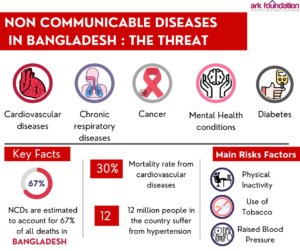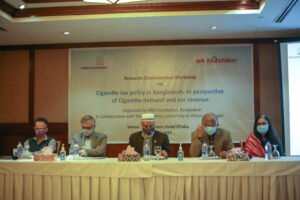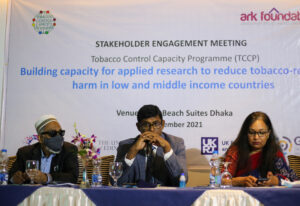By Tahmid Hasan In Bangladesh, NCDs are estimated to account for 67% of all deaths. In low and middle-income countries, urbanization has been identified as one of the crucial underlying reasons for the increasing trends of NCDs. Bangladesh has also been experiencing rapid urbanization for the past two decades. The urban population of Bangladesh has increased
- Published in Blog, News and Media
No Comments
By Badruddin Saify, Research Assistant, ARK Foundation Antibiotic resistance (ABR) arises when bacteria develop resistance to antibiotics. In other words, antibiotics are ineffective against them. It is a common myth that people or animals develop resistance to antibiotics, whereas, in reality, it is germs that become resistant antibiotics. Vector illustration of superbugs. No
- Published in Antimicrobial Resistance, Event, News and Media
Cigarette price increases are more effective in reducing cigarette demand among poorer people. A recently conducted research study finds that the demand for cigarettes responds less than proportionately to changes in cigarette price. Moreover, the study finds that an increase in cigarette price by 10 percent results in a 9 percent decrease of cigarette demand
- Published in News and Media, Workshop
Bangladesh has one of the largest populations of tobacco users in the world, with 37.8 million adults consuming tobacco products. Although the overall prevalence of tobacco use among adults declined from 43.3 percent to 35.3 percent between 2009 and 2017, the rate of cigarette smoking remains alarmingly high, with no change observed during that period.
- Published in News and Media, Workshop
Background: People with severe mental illnesses (SMIs) are likely to face disproportionate challenges during a pandemic. They may not receive or be able to respond to public health messages to prevent infection or to limit its spread. Additionally, they may be more severely affected, particularly in low- and middle-income countries. Methods: We conducted a telephone survey (May–June
- Published in Journal Article, Resources
- Published in Policy Brief, Resources
- 1
- 2







